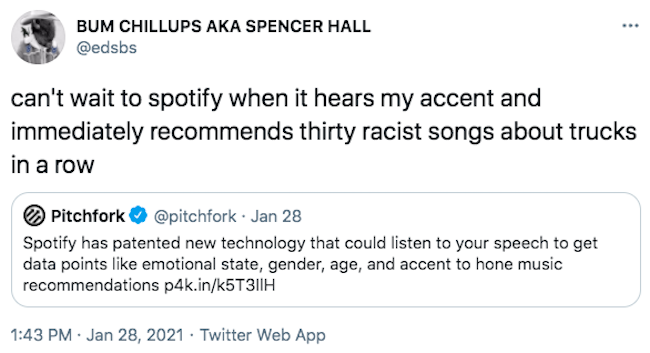Jan 30, 2021 - Technology
Spotify patents tech to recommend songs based on users' speech, emotion
Add Axios as your preferred source to
see more of our stories on Google.

Spotify logo. Photo Illustration: Omar Marques/SOPA Images/SOPA Images/LightRocket via Getty Images

